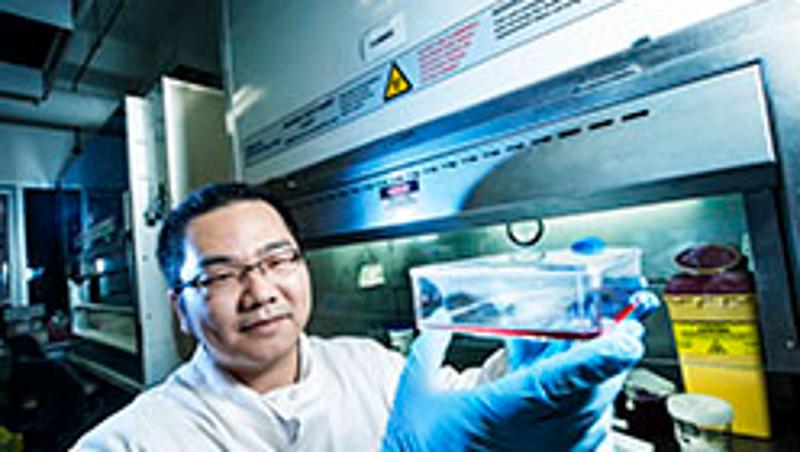
A QUT PhD researcher is on the way to showing that an ancient Chinese remedy for healing wounds could be useful for removing raised scars called hypertrophic scars.
Chen Fan, from QUT's School of Biomedical Sciences at the Institute of Health and Biomedical Innovation, investigated the active components of shikonin, a traditional Chinese medicine from the dried root of a plant called Lithospermum erythrorhizon which grows in China, Japan and Korea.
Mr Chen collaborated with researchers from Changhai Hospital of Traditional Chinese Medicine, Second Military Medical University, Shanghai, China and the Tissue Organ Bank & Tissue Engineering Centre, General Hospital of Ningxia Medical University, China.
"Shikonin has traditionally been used to improve wound healing or to treat dermatitis and eczema," Mr Chen said.
"Hypertrophic scars can be a big problem, particularly after burns. They are common in developing countries.
"A year after a wound has healed they feel tough, are dark and can cause loss of movement of joints, pain and itching."
Mr Chen said while the exact mechanism that caused hypertrophic scars to form was unknown, researchers did know it was a combination of conditions that caused the unsightly, often debilitating, scars.
"Hypertrophic scars form from a combination of reduced normal cell death, over-production of collagen, slow regrowth of the epithelial tissue or top layer of skin and prolonged inflammation during wound healing," he said.
"When we tested shikonin's active compounds on human scar cells in the laboratory we found it reduced cell growth and collagen production.
"This suggests that shikonin could be used as a powder on a hypertrophic scar three months after the wound has healed to reduce the scarring and perhaps return the scar to a normal healed wound."
Mr Chen's work is another example of QUT researchers investigating a traditional Chinese medicine. Dr Patrick Ling, from QUT's Institute of Health and Biomedical Innovation and the Australian Prostate Cancer Research Centre-Queensland, has found that a mushroom compound, long used to boost health and immunity in China, has a role in reducing the growth of prostate cancer tumours.
A link to the published study is here:
Media contact: Niki Widdowson, QUT media, 07 3138 2999 or n.widdowson@qut.edu.au.




